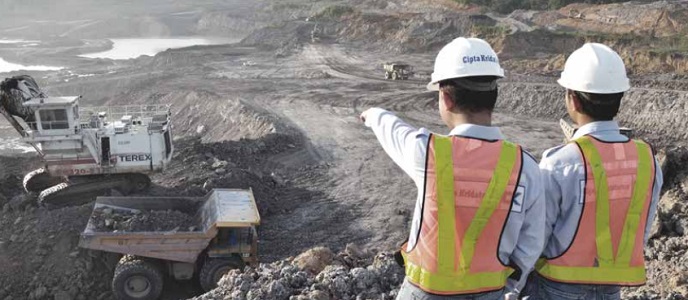Should Indonesia Relax the Mineral Ore Export Ban? No Says AP3I
According to the Association of Indonesian Processing and Refining Companies (AP3I), consumption of mineral ores in Indonesia will be solid starting from 2017 due to the start of operations of new smelters. Jonathan Handojo, Vice Chairman of the AP3I, says domestic consumption of nickel ore will reach 7 million tons in 2017, roughly the same amount of nickel ore that was exported in 2009 before the New Mining Law - which stipulates a ban on exports of mineral ore from Indonesia (per January 2014) - was revealed.
Later this year four new smelters, combined worth USD $12 billion, are expected to start operations thus giving a boost to domestic mineral ore consumption in Indonesia. Part of the nation's 2009 New Mining Law is the requirement to refine mineral ore domestically before export is allowed. The Indonesian government designed this law in a bid to reduce Indonesia's dependence on raw materials, to increase the value of its (natural resource) export products, and to boost domestic (downstream) processing facilities. Although this export ban was designed to be implemented in full force in January 2014, the government allowed the resumption of some mineral ore exports as domestic processing facilities were still limited. Under strict conditions, several miners have been allowed to export raw materials up to 2017 when the export ban is expected to be fully implemented.
Recently, Indonesian government officials started hinting at the possibility to relax this mineral ore export ban as progress with smelter development has been disappointing. Amid low commodity prices Indonesian miners have been reluctant to commit to costly investment in processing facilities. As such, a full export ban would do more harm than good.

Regarding this matter, AP3I's Vice Chairman Handojo said the institution will advise Indonesian President Joko Widodo to remain committed to the full implementation of the mineral ore export ban as domestic ore consumption will continue to rise as more smelters come online. Moreover, commodity prices seem to give some signals of recovery, led by recently rallying crude oil prices. This will make it more attractive for miners to speed up smelter development.
The table below shows a steep rise in nickel ore exports from Indonesia in the years 2009-2013. This is followed by a steep decline in export in 2014 after the partial implementation of the mineral ore export ban.
Indonesia's Nickel Ore Exports 2005-2014:
| 2005 | 2006 | 2007 | 2008 | 2009 | 2010 | 2011 | 2012 | 2013 | 2014 | |
| Nickel Ore Export (in million tons) |
0.07 | 0.66 | 5.43 | 6.59 | 7.60 | 14.35 | 36.14 | 43.09 | 58.60 | 3.98 |
Source: Bisnis Indonesia
Handojo added, however, that domestic development of iron ore smelters remains a problem as the price of iron has kept sliding. As such, it is expected to remain not economically-viable for miners to invest in iron smelters. Moreover, Indonesia is estimated unable to compete with Australian iron smelters as these use more efficient technology and require less workers (hence having lower production costs). Lastly, there is a wide variety of iron ore found in Indonesia. This will also require a wide variety of smelting facilities. However, each smelter will have difficulty to find the specific iron ore that matches the specification of the smelting equipment.
Meanwhile, Hariyadi Sukamdani, Chairman of the Indonesian Employers Association (Apindo), said disappointing smelter development across Indonesia since the unveiling of the 2009 Mining Law can actually be blamed on the Indonesian government. When the government introduced the New Mining Law (thus basically forcing miners to develop smelting facilities) it did not make efforts to increase the supply of electricity. Sukamdani says many investors were interested to invest in smelters but the lack of electricity supply made them hesitant.
Fiscal incentives would also have made it more attractive for miners to invest in smelters. The government only scrapped import duties for smelter equipment. Sukamdani said the government should also have offered a tax holiday or tax allowance to the miners. He further added that if the government will relax the mineral ore export ban it will again show the world that the Indonesian government is not committed to its own policies (so-called "flip-flop policies").
Bahas
Silakan login atau berlangganan untuk mengomentari kolom ini
